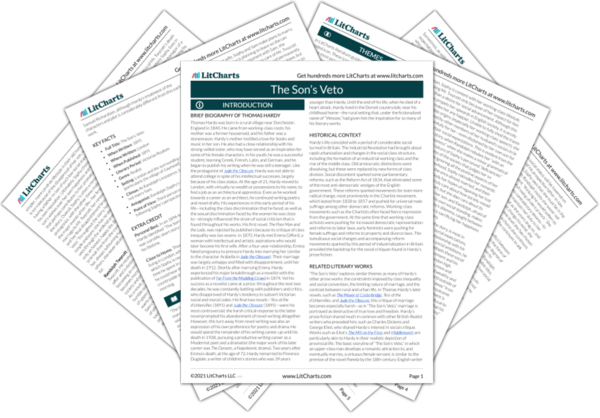Mr. Twycott’s investments into Sophy’s education, intended to fit her into the role of an upper-class wife, show that, despite his affection for her, he is not quite willing to accept her as she is, with all her lower-class mannerisms. Instead, he implicitly treats her use of language and her ignorance of upper-class culture as an object of shame, something that ought to be changed. Yet, unable to fully shed these traces of her upbringing, Sophy finds herself shunned and isolated from the rest of her husband’s social circle. Her own son, absorbing the values of the society he is raised into, begins to reject his own mother, seeing her social origins as something to be ashamed of. This outcome demonstrates the pettiness of superficial social conventions, which damage human relationships.
